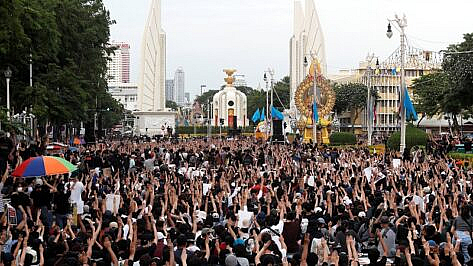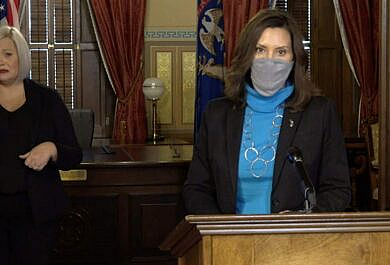Anti-government demonstrations have swept across Thailand. What happened?
Summary
Demonstrators have gathered in Thailand for several months to protest the federal government, which they claim is undemocratic.
- Thailand is constitutional monarchy; executive power is shared between the nation’s King and Prime Minister. A military coup placed current prime minister Prayuth Chan-Ocha in power in 2014; since then, he and his party have entrenched their power in the region and secured re-election.
- Pro-Democracy activists have been marching in the streets since the most recent federal election in March, demanding constitutional reform, decreased political power for the king, and the resignation of the Prime Minister.
- As the government tries to crack down on protesters by banning large gatherings, shutting down public transportation, arresting activist leaders, and deploying security forces and tear gas to disperse protesters, the movement has refused to back down.
- The demonstrators demanded that the Prime Minister resign on or before 10 pm on Saturday. After he did not step down, activists announced a plan to petition the German Embassy for an investigation into the king’s abuse of power. Thai King Maha Vajiralongkorn spends the majority of his time at a home in Germany, rather than in Thailand.
- On Saturday, Thai parliament announced that it would open a session Monday to discuss the protesters’ demands. The Prime Minister lifted the state of emergency he had declared at the onset of the protests (which many activists had ignored) and demonstrators gathered on Sunday to rally ahead of the parliamentary session.
![]()
- Highlights the grassroots nature of the activist movements. The New York Times points out that the activist movement was spearheaded by students impacted by socioeconomic disparities in Thailand.
- Points out that the situation is precarious and unlikely to be solved by a simple resignation. Bloomberg writes that only sweeping political, social, and constitutional reforms will solve the deep-seated issues brought to light by the activists.
- Reports on the violent suppression deployed against protestors. The Washington Post highlights the story of police crackdowns on protesters.
![]()
- Emphasizes that Thailand’s current system is effectively authoritarian. National Review writes a scathing critique of the current King of Thailand, comparing him to outrageous “priest-kings” of yore.
- Highlights the diminished freedoms enjoyed by Thai people, including freedom of speech. Fox News reports that criticism of the monarchy holds a long prison sentence.
- Reports on the COVID-19 crisis in the country. The New York Post reports that the king was recently rushed to the hospital for a COVID test after several of his body guards tested positive for the virus.
© Evelyn Torsher, 2020






